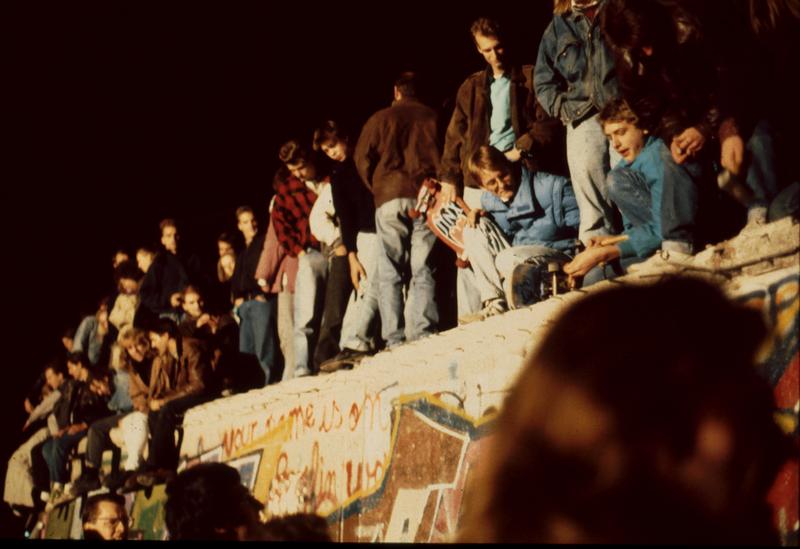 The Brian Lehrer Show
The Brian Lehrer Show
25 Years in 25 Days (1989): "The End of History"

This segment originally aired live on September 29, 2014. An edited version was included in a best-of episode of The Brian Lehrer Show on December 26, 2014. The unedited audio can be found here.
This fall, the Brian Lehrer Show is marking 25 years of Brian at WNYC with a year-by-year look at stories that mattered from 1989 to 2014. Find the full schedule and lots more here.
Also today: Kurt Andersen on the impact of the Simpsons.
The Brian Lehrer Show got its start in 1989, the year that the Berlin Wall came down, Solidarity was elected to power in Poland and the essay “The End of History” about the fall of communism was published. Jan Kubik, professor and chair of political science at Rutgers University, was able to return to his native Poland for the first time in seven years that fall and he talks about how protest helped bring down the Soviet empire and how culture, politics and quality of life have actually evolved over the past 25 years. Prof. Kubik is the author of The Power of Symbols Against the Symbols of Power: The Rise of Solidarity and the Fall of State Socialism in Poland, and the co-editor of Twenty Years After Communism: The Politics of Memory and Commemoration .
Then, Francis Fukuyama, former state department staffer, senior fellow at the Freeman Spogli Institute for International Studies at Stanford University and the author of the Political Order and Political Decay: From the Industrial Revolution to the Globalization of Democracy (Farrar, Straus and Giroux, 2014), reflects on his 1989 essay "The End of History?" that caused such a stir by asserting that the end of the Cold War meant the end of ideological struggle and a complete triumph for Western liberal democracy.
Lech Walesa addresses the U.S. Congress in 1989
Protesters in Kharkov dismantle a statue of Lenin September 28, 2014